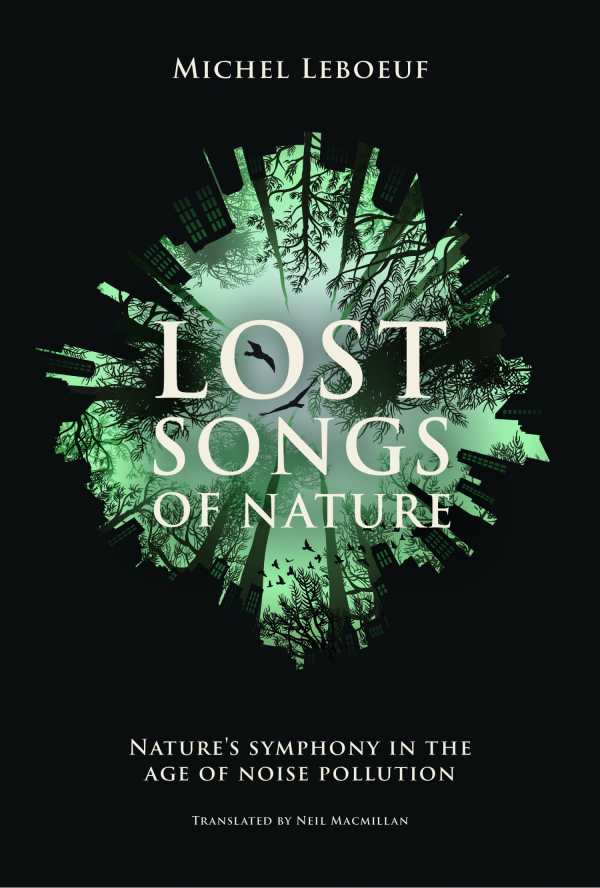Lost Songs of Nature
Nature’s Symphony in the Age of Noise Pollution
Michel Leboeuf’s Lost Songs of Nature is a thought-provoking study of “acoustic ecology,” or the natural and human-made sounds of the world, that carries warnings about contemporary threats to biodiversity.
Organized into five “symphonic movements,” the text includes a meditation on the music of Canadian forests, marshes, swamps, bogs, tundra, seashores, and cities. Lyrical passages describe the “dawn chorus” of whistling robins, squeaking voles, and humming mosquitoes; the evening “repertoire” of a hermit thrush chanting its ethereal song on a lakeshore; and the “grumbling” of post-hibernation black bears. Also considered are the lost songs of extinct species such as great auks and passenger pigeons.
The book also probes scientific research on the significance of sounds in nature. For instance, biologists have used specialized microphones to record vibrations generated by ants, nematodes, and other microfauna found in healthy soil, rich in organic matter. A fascinating chapter entitled “How Plants Hear” summarizes research on plant acoustics, including evidence suggesting that plants have a type of consciousness that responds to sound.
Evocative and poetic, the text includes an account of a wood turtle rhythmically tapping the forest floor to imitate the sound of raindrops and encourage earthworms to come to the surface. The book emphasizes that the “growing din” of human societies, combined with habitat loss, climate change, pollution, and invasive exotic species, is overwhelming wild species’ ability to live and reproduce. Multiple studies document species’ decline in environments overwhelmed by human-caused noise. The book calls for conservation and a reduction in human influence to preserve the diverse sounds essential to a healthy planet: “When the ecosystem breaks down, the natural harmony of nature’s orchestra is lost.”
Highlighting the diverse sounds of wild places, Lost Songs of Nature is an engrossing, haunting book with an urgent environmental message.
Reviewed by
Kristen Rabe
Disclosure: This article is not an endorsement, but a review. The publisher of this book provided free copies of the book to have their book reviewed by a professional reviewer. No fee was paid by the publisher for this review. Foreword Reviews only recommends books that we love. Foreword Magazine, Inc. is disclosing this in accordance with the Federal Trade Commission’s 16 CFR, Part 255.

